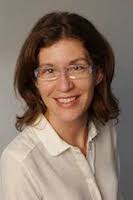Composing events in Romance causative constructions and the semantics of causation
7/2018- 6/2021
Projektleiter Principal Investigator
Prof. Dr. Klaus von Heusinger
In Kooperation mit In cooperation with
Prof. Dr. Martin Becker
Dr. Bridget Copley (Paris)
Dr. Marta Donazzan (Nantes)
Doktorandin PhD-Student
Clémentine Raffy
SHK Student Assistant
Antonia Braun
Das Projekt "Composing events in Romance causative constructions and the semantics of causation" wird von der DFG gefördert.
The Projekt "Composing events in Romance causative constructions and the semantics of causation" is supported by the DFG.
Zusammenfassung
Allgemeine Kausalitätstheorien gehen davon aus, dass Kausalität eine Beziehung zwischen zwei Ereignissen ist: einem verursachenden Ereignis und einem verursachten Ereignis. Das verursachende Ereignis ist für das Eintreten des verursachten Ereignisses verantwortlich und löst durch seine Interaktion eine Zustandsänderung aus. Periphrastische Kausalkonstruktionen (vom Typ X veranlasst Y Z zu tun) unterscheiden sich von anderen Kausalzusammenhängen (lexikalisch oder morphologisch) dadurch, dass sie ihr verursachtes Ereignis syntaktisch projizieren. Obwohl klar ist, dass zwei Ereignisse ausgedrückt werden, verhalten sich romanische syntaktische Kausalzusammenhänge in Bezug auf die syntaktische Realisierung anders als ihre englischen Entsprechungen, und es ist noch nicht geklärt, ob diese Konstruktionen monoklausal oder biklausal sind. Wir gehen davon aus, dass die verschiedenen verfügbaren Erkenntnisse tatsächlich auf unterschiedliche kausale Zusammenhänge abgebildet werden. Das Ziel dieses Projekts ist daher erstens, die verschiedenen syntaktischen Erkenntnisse von kausativen Konstruktionen in romanischen Sprachen zu untersuchen und zweitens, ein Modell zu entwickeln, das auf Kraft-Dynamik basiert und die verschiedenen Varianten syntaktischer Kausalfaktoren in romanischen Sprachen und innerhalb einer Sprache berücksichtigt. Unser Modell wird auf der Analyse der Kraft-Dynamik von Wolff & Song (2003) basieren, die Kausalität in drei Unterkategorien unterteilt: CAUSE, ENABLE und PREVENT. Unser Ziel ist es, diesen Ansatz zu verfeinern, um ihn besser an die tatsächliche natürliche Sprache und die kognitiven Darstellungen von Kausalität anzupassen. Dies geschieht durch Korpusforschung und Experimente.
Abstract
General theories of causation assume that causation is a relationship between two events: a causing event and a caused event. The causing event is responsible for the occurrence of the caused event and their interaction triggers a change of state. Periphrastic causative constructions (of the type X makes Y do Z) differ from other causatives (lexical or morphological) because they syntactically project their caused event. Although it is clear that two events are expressed, Romance syntactic causatives behave differently from their English counterparts in terms of syntactic realization and it is still debated whether those constructions are monoclausal or biclausal. What we assume is that the different realizations available are actually mapped onto different causal relations. The aim of this project is thus twofold. First, our aim is to investigate the different syntactic realizations of causative constructions in Romance languages. Second, we plan on creating a model based on force-dynamics that accommodates the different varieties of syntactic causatives across Romance languages and within one language. Our model will be based on Wolff & Song’s (2003) analysis of force-dynamics, which divides causation in three sub-categories: CAUSE, ENABLE and PREVENT. Our aim is to refine this approach in order to make it more fitting to actual natural language and the cognitive representations of causation. This will be done through corpus research and experiments.
Projektmitglieder Project Members
Institut für deutsche Sprache und Literatur I – Sprachwissenschaft
Albertus-Magnus-Platz | 50923 Köln
Büro: Philosophikum, 2. Stock, Raum 2.116
Tel.: +49(0)221-470-4884
E-Mail: klaus.vonheusinger(at)uni-koeln.de
Romanisches Seminar
Universitätsstr. 41 | 50937 Köln
Büro: Philosophikum, Raum: 2.313
Tel: +49-(0)221-470-2832
E-Mail: martin.becker1(at)uni-koeln.de

Université de Nantes
Bâtiment FLCE - Bureau 719
Chemin de la Censive du Tertre
BP 81227, 44312 Nantes Cedex 3
E-Mail: marta.donazzan(at)univ-nantes.fr
Doktorandin PhD Student
Institut für Deutsche Sprache und Literatur I
Albertus-Magnus-Platz | 50923 Köln
Luxemburger Str. 299, Raum 1.05
Tel: +49(0)221-470-6963
E-Mail: craffy(at)uni-koeln.de
Antonia Braun
Institut für Deutsche Sprache und Literatur I
Albertus-Magnus-Platz | 50923 Köln
Luxemburger Str. 299, Raum 2.12
Telefon: (+49) 221 470-89903
E-Mail: abraun15(at)uni-koeln.de
Publikationen publications
eingereicht/submitted
Schmid, Svenja, Klaus von Heusinger & Georg A. Kaiser. submitted. On word order variation and information structure in Spanish and Italian ’why’-interrogatives. Cadernos de Estudos Linguısticos.
veröffentlicht/printed
Donazzan, Marta, Clémentine Raffy & Klaus von Heusinger. 2020. Causation and dispositions: Towards a semantic characterization of the french causative verb laisser. Bucharest Working Papers in Linguistics XXII(2). 55–75. doi: https://bwpl.unibuc.ro/vol-xxii-nr-2/. [PDF]
Kaiser, Georg A., Klaus von Heusinger & Svenja Schmid. 2019. Word order variation in Spanish and Italian interrogatives. The role of the subject in ‘why’-interrogatives. In Natascha Pomino (ed.), Proceedings of the IX Nereus International Workshop ”Morphosyntactic and semantic aspects of the DP in Romance and beyond” (Arbeitspapier Nr. 131), 69–90. Konstanz: Fachbereich Sprachwissenschaft der Universität Konstanz.
Vorträge presentations
2021
Raffy, Clémentine, Marta Donazzan, Bridget Copley & Klaus von Heusinger. Letting structure speak with authority: Constraining agents‘ choiced with French laisser. Agents and Intentions in Language, University of Göttingen, January 2021.
2020
Copley, Bridget, Marta Donazzan & Clémentine Raffy. 2020. Characterizing French LAISSER using causal functions and scales. Going Romance 34. November 2020.
Raffy, Clémentine. 2020. French syntactic causatives – the case of laisser. GAKT 5, University of Cologne. February 2020.
2019
Kaiser, Georg A., Svenja Schmidt & Klaus von Heusinger. 2019. Information structure and subject-verb inversion in Italian and Spanish ‘why’-interrogatives. Workshop on Subject, Topic and Clausal Architecture at Universidade Federal de Santa Catarina (UFSC), Florianópolis, Brazil, November, 2019.
Raffy, Clémentine. 2019. Causative constructions and their arguments: The case of French laisser. Oberseminar, University of Cologne. November 2019.
Donazzan, Marta, Clémentine Raffy & Klaus von Heusinger. 2019. The dynamics of enabling. An investigation into French laisser causatives. Poster. OASIS 2, Université de Nantes, October 2019.
Clémentine Raffy & Marta Donazzan. 2019. Causation at the interface. Formal Linguistics in Prague, February 2019.
Konferenzen und Workshops conferences and workshops
SLE Workshop: "Causation: From concept(s) to grammar", Athen, 31. August bis 03. September 2021.
Workshop: "GAKT (Germanistische Linguistik zwischen Köln und Tokio) 5: Informationsstruktur in Semantik und Syntax", University of Cologne, 10.-11. Februar 2020.